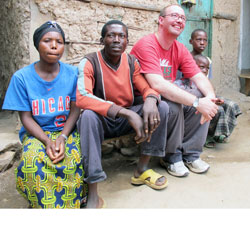OK, here’s the thing:
Come Sunday, we will be in the season of Advent. The season of waiting. The season of preparing. The season of hope.
One of the biggest complaints you hear in the Church is that society in general tends to skip over Advent and move right to Christmas, that Black Friday is more important than anything the Church has to offer, that somehow, we’re taking the “Christ” out of Christmas.
And yeah, in some ways, we probably are.
But I am wondering, right now, if in condemning those who focus on Christmas in Advent, we are missing the point.
If you and your significant other were to be expecting a baby on Christmas Day, wouldn’t you be preparing?
Wouldn’t you be out there, rushing around to get the last-minute supplies?
And go to the baby showers?
And paint the room?
And lay in the food?
And buy, buy, buy, buy?
Wouldn’t you?
So … if it’s OK to do that for your baby, why isn’t it OK to do for God’s baby?
I mean, yeah, some people do miss the meaning of Christmas, and it does become a thing about buying for the sake of buying, and partying for the sake of partying.
But even then, are they really missing the point? Aren’t they focused, at least in some little way, on relationships?
Because isn’t that what all this frenzy is about, in this season of Advent? Aren’t we going nuts because of relationships?
I mean, what if the presents we are buying are the ones that people actually need?
Or what if the presents are the kind that help others – you know, the gift cards that help bring clean water to the thirsty, and food to the hungry, and clothing to the naked?
And what if, in attending those parties, we are celebrating relationships? Community?
And what if, in going to see family for the holidays, we are doing the same thing?
Be careful what you wish for.
Telling people they can’t celebrate Christmas in Advent means that in reality, we are telling people they can’t prepare.
And last time I checked, that’s what Advent is all about: preparing.
After all, isn’t that what John the Baptist kept crying: Prepare ye the way of the Lord!?
So forgive me if I’ve reached the age when I feel it’s OK to get a bit worked up about Christmas. When I say I’m going to a “Christmas” party, and not an “Advent” party. When I let slip with a “Merry Christmas” on occasion.
And forgive me for getting excited about the fact that there’s a BABY coming!
And forgive me for spending a lot of time thinking about what gift I’m going to get for each of my loved ones. I put a lot of thought into this, and a lot of work as well. Will the gifts I give be the biggest and the bestest? Hardly. But they will be thoughtful, and they will be loving, and I will enjoy giving them, and pray that my loved ones will enjoy receiving them.
So go ahead. Go a little nuts if you must in this season of Advent. Because remember: You are preparing.
If you really want to know what Advent is all about, look at this video, Advent in 2 Minutes.
And then remember: Advent? It’s about preparing. And hope.
So go on … go prepare. And hope some, too.
That’s the spirit.






